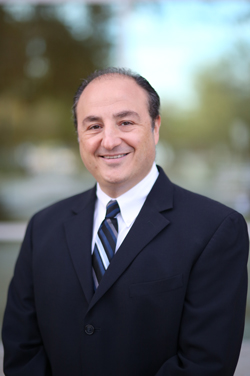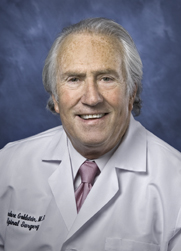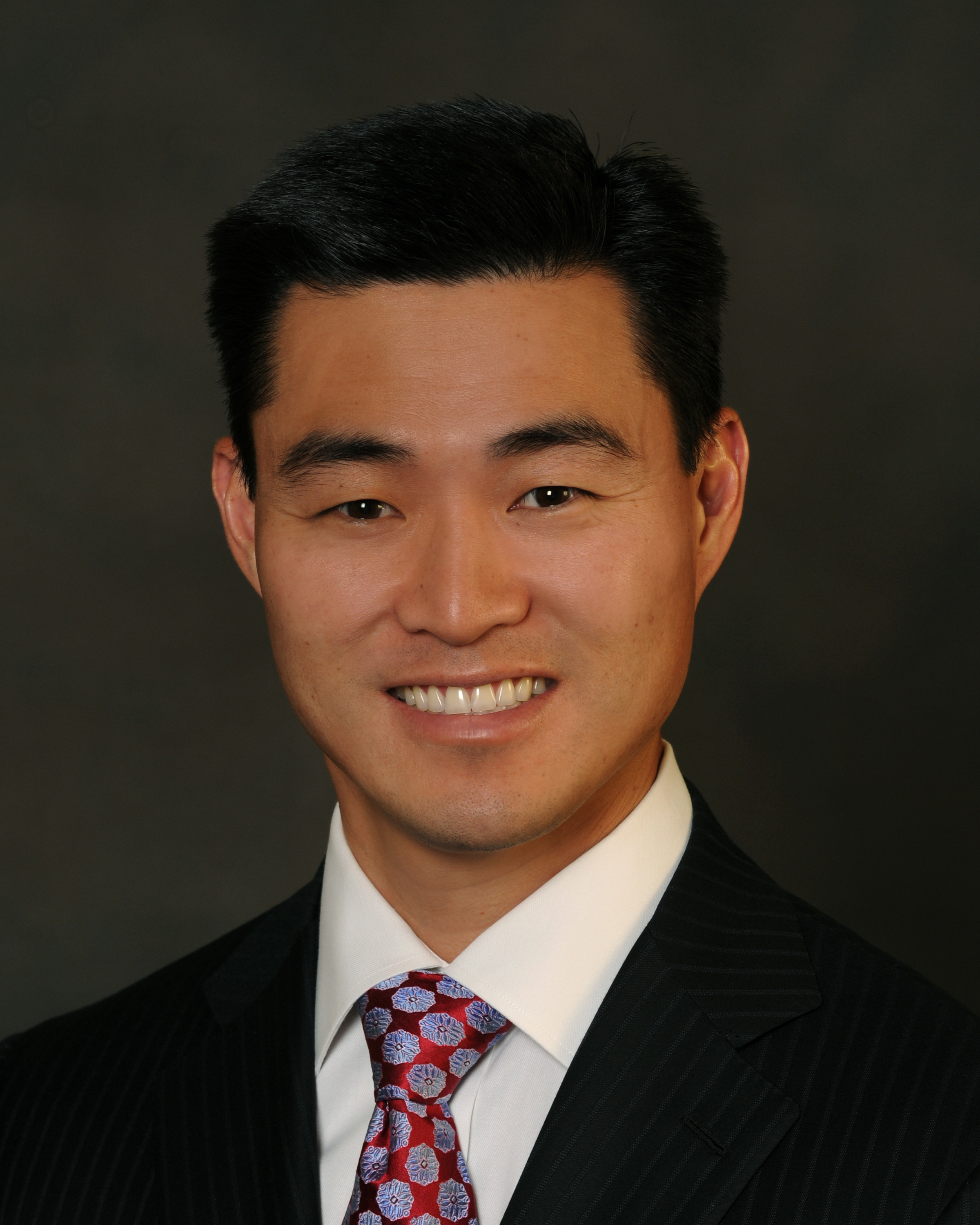Nine spine surgeons discuss the importance of patient satisfaction and ways to raise and maintain it.
Ask Spine Surgeons is a weekly series of questions posed to spine surgeons around the country about clinical, business and policy issues affecting spine care. We invite all spine surgeon and specialist responses. Next week's question: What is the best professional advice you have ever received and how do you apply it to your practice?
Please send responses to Anuja Vaidya at avaidya@beckershealthcare.com by Wednesday, April 23, at 5 p.m. CST.
 Question: What are some ways to ensure spine surgery patient satisfaction?
Question: What are some ways to ensure spine surgery patient satisfaction?
Ali Araghi, DO, Orthopedic Spine Surgeon, The CORE Institute, Phoenix: Patient satisfaction is directly related to patient expectations. Patients' surgical risks and outcomes expectations can be managed through effective and clear communication. Education is the delivery vehicle. The challenge is the patients' ability to understand, and at times their willingness to accept less than perfect outcomes.
Even more challenging is for the clinician to detect such red flags, such as lack of patient understanding or willingness to accept such results, despite what seems to be a thorough discussion. Hence one of the keys to improving satisfaction and surgical expectations is clear communication of reasonable surgical outcomes and all potential risks. Even more important is to check the patient's trueunderstanding of such issues by having them repeat it back during the interview.

Neel Anand, MD, Clinical Professor of Surgery, Director, Spine Trauma, Cedars-Sinai Spine Center, Los Angeles: Do what is right for them. Treat them like you would treat your family. Be honest and upfront with them; that is how you build trust. Also, treat their complaints and not their X-rays.
 George Cybulski, MD, Neurological Surgeon, Northwestern Medicine, Chicago: The spine patient is now officially a spine consumer. Every patient arrives with some information obtained via the internet or other sources. As has always been the case, a thorough discussion of the diagnosis, treatment recommendations and especially the expectations for improvement are the keys to providing value to the spine consumer. Going forward, much of this groundwork will be provided by dedicated patient portals and other apps for managing spine care.
George Cybulski, MD, Neurological Surgeon, Northwestern Medicine, Chicago: The spine patient is now officially a spine consumer. Every patient arrives with some information obtained via the internet or other sources. As has always been the case, a thorough discussion of the diagnosis, treatment recommendations and especially the expectations for improvement are the keys to providing value to the spine consumer. Going forward, much of this groundwork will be provided by dedicated patient portals and other apps for managing spine care.
Ara Deukmedjian, MD, CEO, Medical Director, Deuk Spine Institute, Melbourne, Fla.: The most important way to keep spine surgery patients satisfied is simply by fixing the problem the patient comes in for. Be sure to ask the patient what are their goals for the treatment. Is the patient seeking surgery to relieve pain or neurological deficits? Are the patients' expectations about their treatment realistic and reasonable for the surgeon to deliver?

Surgeons need to be honest with themselves about whether or not the surgery they are proposing will fix what the patient wants them to fix. As long as the patient knows what they want fixed and they share their goals with their surgeon and the surgeon is capable of producing the results the patient wants with little risk of complications, then patient satisfaction will be high and everyone is happy.
Full disclosure is always necessary from both the surgeon and the patient. Spine surgeons that don't have the confidence in their ability to deliver should either develop the skills needed to have the surgical outcomes their patients' desire or the surgeon should refer their patient to a colleague that can provide the result the patient wants.
Purnendu Gupta, MD, Director, Chicago Spine Center, Weiss Memorial Hospital, Chicago: Patient satisfaction stems from good patient care. It is the most important part of my practice and I am passionate about giving people the best patient experience possible.

The foundation of good patient care is good communication, and it starts with a clear understanding of why we are operating. If patients do not grasp the "why," surgeries and their outcomes become much more challenging. Once you are confident the patient knows why the surgery needs to be done, then key information should be given to them.
Firstly, explain realistic outcomes, such as the percentage of reduced pain, their ability to stand or walk and general quality of life expectations. Secondly, review the potential risks. It can be a difficult conversation to have, but take the time to do so. When people do not understand potential complications and surgical outcomes sometimes do not turn out as planned, they have a hard time coping.
Our multidisciplinary team also gets to know the patients, not only through their medical history and X-rays, but also by talking with them and their family — their support system — on a personal basis. I believe no one should go to surgery without three visits. It takes time, but it makes all the difference in their preparation for surgery. It gives our team confidence that we are doing the best for the patient, and it gives the patient peace of mind with the decision they are ultimately making. They know we care enough to take the time to get to know them and we have their best interests in mind.

Brian R. Gantwerker, MD, Neurosurgeon, The Craniospinal Center of Los Angeles: I think providing close follow-up and hands-on care is the key to patient satisfaction. While it may sound like it "costs" more to see a patient more often during the postoperative period, it may save you grief, and the patient the difficulties of a postoperative complication.
Also, adequate and full consent for an operation is critical. The patient becomes an informed, and responsible, consumer. Lastly, taking the time to review the films with the patient and to explain in clear and appropriate language what you want to do and why you think it will help them.
Theodore Goldstein, Co-Medical Director, Cedars-Sinai Spine Center, Los Angeles: The younger spine surgeons are highly trained in technical terms, but unfortunately, if you only pay attention to technique, you will end up with a technical success but a functional failure. The only way to understand patients is to listen to them and that is a skill that isn't emphasized enough — the skill of listening.

We are usually dealing with elective surgery for quality-of-life issues rather than traumatic, emergency surgeries. The surgeon owes the person he is going to operate on some face-to-face time. The surgeon must understand their patients' expectations and concerns regarding the surgery. Then, fewer patients will be disappointed.
Surgeons need to understand what the patient expectations are and then manage those expectations. Also, listening and talking to patients builds trust. So it is imperative that the patient talk to the physician and not a physician assistant or resident.
Richard A. Kube II, MD, CEO, Founder, Prairie Spine & Pain Institute, Peoria, Ill.: There are many things one should do, including data collection and analysis with appropriate changes made. Keeping eye contact, listening and educating are often discussed. But something, I believe, that is often overlooked is training on language elements. Perception is everything, so this applies to everyone in the practice.

Consider a patient forgot his or her films or is upset about filling out paperwork. You could say, "You need/I want you to understand…." and you could also just say it is company policy. Finally, you could just as easily say, "Let me explain why I feel…is important." All of these are trying to convey a similar message, but in the first instance you are basically calling the patient stupid. In the second, you come across disengaged and impersonal or even condescending. In the last, you demonstrate a desire to educate, and you are asking their permission by using the word "let" in the conversation.
Patients are in pain and are often scared about what their future may hold. They often feel like everything is beyond their control. Language elements that provide a choice to the patient, even if the choice is a bit of an illusion will improve the patient experience because they empower the patient and create a greater sense of autonomy. You will likely also find that this will engage the patients to a higher degree, leading to more and better questions regarding their condition. This will in turn allow you to become a better educator and improve patients' levels of expectations. This positive ripple effect will inevitably translate into higher patient satisfaction.
Michael Roh, MD, Co-Founder, Rockford (Ill.) Spine Center: Obviously, there is no substitute for good clinical outcomes, as measured by pain relief or neurological recovery. That being said, effective management of patient expectations during the surgical discussion is a critical way to manage satisfaction, which is a highly subjective parameter.

Often, spine surgeons may feel pressure to reassure patients that the surgery will be worthwhile by promising relief of all associated symptoms; for example, axial lumbar or sacroiliac pain, thoracic outlet or carpal tunnel symptoms, constant numbness or severe foot drop, etc., when this may ultimately lead to dissatisfaction. Sharing, and documenting, the uncertainty of these factors in an earnest and sympathetic manner often makes the difference between a satisfied or disgruntled patient.
Additionally, it may be helpful to recognize that patients often retain very little from a discussion resulting in the decision to proceed with surgery. In our practice, all patients return for an additional preoperative visit, at which time my physician assistant can review the patient's symptoms and exam findings, reiterate the risks and benefits, clarify any misconceptions and run down a checklist of final details that are often missed, for example, advise a professional singer before an anterior cervical surgery, warn elderly patients and their families about postoperative confusion, ask about food allergy to egg white because we use TIVA with propofol, etc.
It's a great feeling to ask a patient in the preoperative holding area if they have any questions and for them to respond, "I believe all of my questions have been thoroughly answered."
More Articles on Spine:
Hospital for Special Surgery Names Dr. Todd Albert Surgeon-in-Chief
Costs for SI Joint Disruption, Sacroiliitis About $270M Over 5 Years
The Robotic Difference: How New Technology Could Impact Spine

